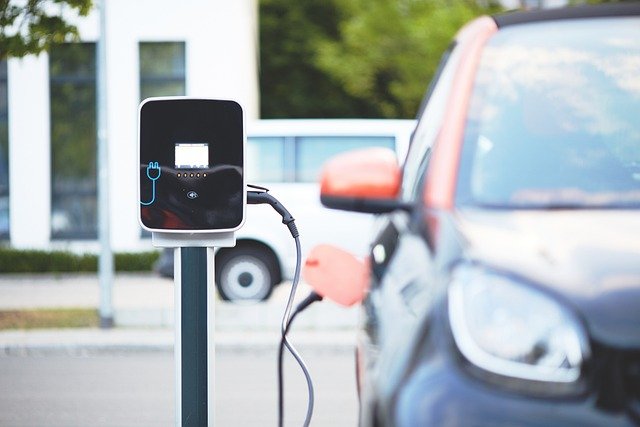Home Electric Car Chargers: Installation and Options Guide
Installing an electric car charger at home represents a significant step towards convenient electric vehicle ownership. Home charging solutions eliminate range anxiety and provide overnight charging convenience, making electric vehicle ownership more practical for daily commuting and longer journeys. Understanding the various charging options, installation requirements, and technical specifications helps ensure you select the most suitable charging solution for your specific needs and electrical setup.

What Makes an Electric Car Charger Suitable for Home Use?
Electric car chargers designed for home installation typically operate at lower power levels than commercial charging stations, making them compatible with residential electrical systems. Most home chargers connect to your existing electrical supply through a dedicated circuit, similar to how major appliances like electric cookers or washing machines connect to your home’s power supply.
Home charging units generally fall into two categories: portable charging cables that plug into standard domestic sockets, and dedicated wall-mounted units that require professional installation. The choice between these options depends on your charging speed requirements, electrical capacity, and budget considerations.
Which Electric Vehicle Charging Speeds Work Best at Home?
Electric vehicle charging speeds at home depend on several factors including your electrical supply capacity, the charger’s power output, and your vehicle’s maximum charging rate. Standard domestic three-pin sockets provide the slowest charging speeds, typically adding 8-12 miles of range per hour of charging.
Faster home charging requires higher-powered units that draw more electricity from your home’s supply. These units can significantly reduce charging times, often fully charging an electric vehicle overnight. The charging speed you achieve also depends on your vehicle’s onboard charging capability, as some vehicles cannot accept higher charging rates regardless of the charger’s capacity.
How Do Level 2 EV Chargers Work for Home Charging?
Level 2 EV chargers for home charging operate at higher voltages than standard domestic sockets, typically using 240-volt connections similar to electric cookers or immersion heaters. These chargers provide substantially faster charging speeds compared to standard plug-in charging cables, making them ideal for regular home charging needs.
Installation of level 2 charging units requires professional electrical work to ensure proper connection to your home’s electrical supply. The installation process includes assessing your electrical panel’s capacity, running appropriate wiring, and installing safety equipment like circuit breakers and ground fault protection devices.
What Installation Requirements Apply to Fast Home EV Chargers?
EV fast chargers for home installation require adequate electrical capacity and proper safety installations. Your home’s electrical panel must have sufficient spare capacity to support the additional electrical load, and the installation must comply with local electrical codes and safety regulations.
Professional installation typically involves upgrading your electrical panel if necessary, installing dedicated circuits, and ensuring proper earthing and safety protection. The installation location should provide convenient access to where you park your vehicle while maintaining appropriate clearances from windows, doors, and other structures.
Understanding Electric Vehicle Charging Power and Compatibility
Electric vehicle charging compatibility involves matching your vehicle’s charging capabilities with your home charging solution. Different electric vehicles accept varying maximum charging rates, and exceeding these limits provides no additional benefit while potentially increasing installation costs unnecessarily.
Most modern electric vehicles can accept level 2 charging speeds, making dedicated home charging units practical investments for most electric vehicle owners. Understanding your vehicle’s specifications helps determine the most cost-effective charging solution for your situation.
| Charging Solution | Power Output | Typical Charging Speed | Installation Cost Estimate |
|---|---|---|---|
| Standard 3-pin socket | 2.3kW | 8-12 miles per hour | £0 (using existing socket) |
| Dedicated 7kW unit | 7kW | 25-30 miles per hour | £500-£1,200 including installation |
| Fast 22kW unit | 22kW | 60+ miles per hour | £1,200-£2,500 including installation |
Prices, rates, or cost estimates mentioned in this article are based on the latest available information but may change over time. Independent research is advised before making financial decisions.
Selecting the appropriate home charging solution involves balancing charging speed requirements with installation costs and your home’s electrical capacity. Many electric vehicle owners find that 7kW charging units provide an optimal balance between charging speed and installation complexity, offering sufficient overnight charging for most daily driving needs.
Choosing the Right Home Charging Solution
Determining the most suitable home charging solution requires considering your daily driving patterns, parking arrangements, and electrical system capacity. Households with predictable daily routines and overnight parking access often benefit most from dedicated charging installations, while those with irregular schedules might prefer portable charging solutions.
Future-proofing your charging installation by selecting units with smart charging capabilities can provide additional benefits including time-of-use charging optimization and integration with renewable energy systems. These features become increasingly valuable as electricity tariffs and smart home technologies continue developing.
Home electric vehicle charging represents a practical long-term investment that enhances electric vehicle ownership convenience while potentially reducing charging costs compared to public charging networks. Professional assessment of your electrical system and charging requirements ensures optimal charging solution selection and safe installation practices.




